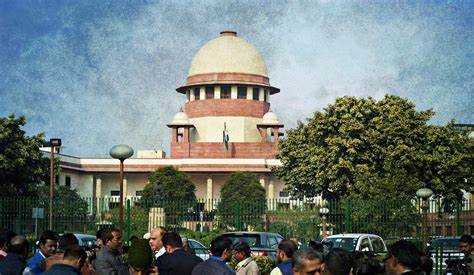Shreya Gupta
On 8th February, 2025, the Supreme Court of India ruled that every person who is arrested has a fundamental right to be informed of the grounds of their arrest as soon as possible. The Court in its decision in Vihaan Kumar vs State of Haryana held that failure by the investigating officer to provide such information amounts to a violation of Article 22(1) of the Constitution, rendering the arrest invalid. The ruling emphasized that compliance with Article 22(1) is mandatory, and any failure to meet this requirement vitiates not only the arrest but also any subsequent remand orders issued by a criminal court.
The Supreme Court further stated that a violation of Article 22(1) entitles the accused to bail regardless of any statutory restrictions. It underscored that when such a violation is established, courts have a duty to order the immediate release of the accused. The ruling clarified that statutory limitations on bail do not override the fundamental rights guaranteed under Articles 21 and 22. Additionally, the Court stressed that when an arrested person is brought before a judicial magistrate for remand, it is the magistrate’s responsibility to verify whether Article 22(1) has been complied with. If not, the arrest is deemed illegal and the individual cannot be remanded.
Despite the illegality of the arrest, the Supreme Court clarified that the investigation, chargesheet, and trial would not be affected. However, the filing of a chargesheet or a trial court’s cognizance order would not retrospectively validate an unconstitutional arrest. The ruling reiterated that an unconstitutional arrest cannot be justified on procedural grounds. The Court listed several safeguards to uphold Article 22, including the requirement that the arrested individual must be informed of the grounds for arrest in a language they understand, and the burden of proving compliance with this requirement lies with the investigating officer or agency.
Justice N. Kotishwar Singh, in a concurring opinion, added that not only must the arrested person be informed of the reasons for their arrest, but the same must also be communicated to a friend, relative, or nominated person, as mandated by Section 50A of the Criminal Procedure Code (CrPC). This provision ensures that the arrested person’s rights are protected by allowing their acquaintances to take legal steps to challenge the arrest. The Court further criticized casual arrests under Section 41 of the CrPC (now replaced by Section 35 of the BNSS), emphasizing that such arrests must be based on credible information. It clarified that for offenses punishable by more than seven years of imprisonment, the police must meet specific conditions before making an arrest.
The ruling was delivered in response to an appeal by a man accused of cheating, criminal breach of trust, and forgery. He alleged that he was neither informed of the grounds of his arrest nor presented before a magistrate within the mandated 24-hour period. Furthermore, he was subjected to inhumane treatment, including being handcuffed and chained to a hospital bed while in police custody. The Punjab and Haryana High Court had previously rejected his plea, dismissing his claims as mere allegations. However, the Supreme Court disagreed, finding the police’s treatment of the accused to be in blatant violation of his fundamental rights under Article 21, which guarantees the right to live with dignity.
The Court strongly criticized the Punjab and Haryana High Court for failing to address the alleged constitutional violations seriously. It stated that all courts, including High Courts, have a duty to uphold fundamental rights, and once a violation of Article 22(1) is alleged, the judiciary must thoroughly examine the claim. Consequently, the Supreme Court declared the accused man’s arrest illegal and ordered his immediate release while allowing the criminal trial against him to continue. Additionally, the State of Haryana was directed to implement guidelines ensuring that no arrested person is subjected to degrading treatment, such as being handcuffed to a hospital bed.
This ruling reinforces the constitutional safeguards against arbitrary arrests and strengthens the legal framework for protecting personal liberty. It highlights the judiciary’s role in ensuring that law enforcement authorities adhere to constitutional mandates, preventing abuse of power in the arrest and detention process.
Case Title: Vihaan Kumar v. State of Haryana
Case Number: Special Leave Petition (Crl.) No. 13320 of 2024
Bench: Justice Abhay S Oka and N Kotiswar Singh
Click here to access the order
Instagram: Click here.
LinkedIn: Click here.
For Collaboration and Business: info.desikaanoon@gmail.com

